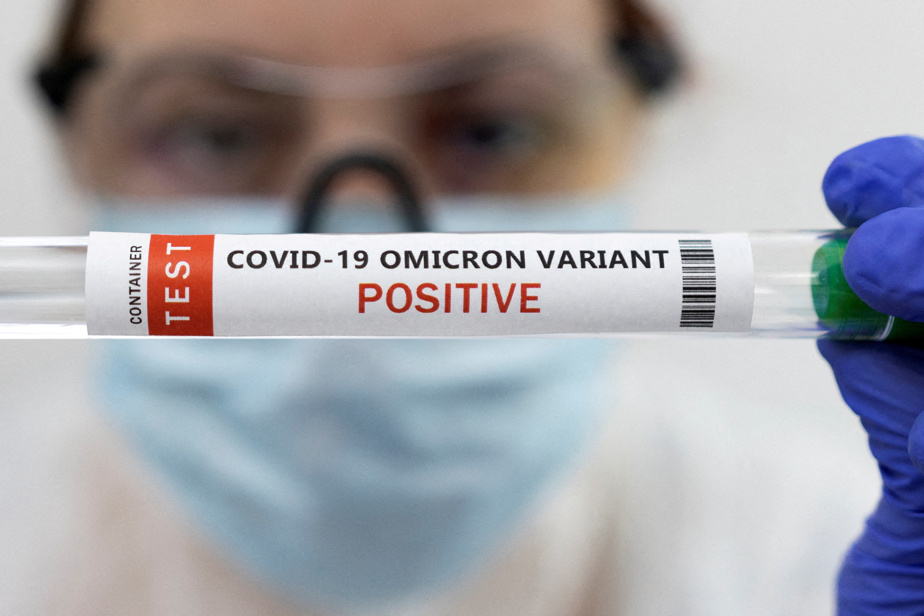(Montreal) For about a week, US health authorities have claimed that the Omicron XBB.1.5 variant has captured the dominant strain in the transmission of COVID-19 in the United States. However, there are still only a few such cases listed in Quebec.
There is still no trace of the XBB.1.5 variant in the online data of the National Institute of Public Health of Quebec (INSPQ) and it will be necessary to wait a few more weeks before monitoring its progress.
According to information provided by the medical director of the Laboratoire de santé publique du Québec (LSPQ), DDr Judith Favard, Seven cases of XBB.1.5 were identified through sample sequencing during the month of December.
Of these, five cases will be linked to the spread of the virus in the community and two other cases will come from travellers.
According to drDr Favard, XBB.1.5 variant accounts for approximately 0.5% of all SARS-CoV-2 infections during Christmas week in Quebec. We say “almost” because statistical data below the 2.5% threshold is considered not reliable enough to be published by the INSPQ.
In addition, variants with a prevalence of at least 1% are presented in the table available on the INSPQ website. Thus, we still don’t see the famous XBB.1.5 appearing during the upcoming data update next week.
“The table is already indigestible, so if we also include variables that account for less than 1%, it will be too many,” explains the expert. The most recent data is from the week of December 11-17 and there are 37 different sub-variables in circulation.
The microbiologist and infectious disease specialist estimates that Quebec may have a few weeks before seeing XBB.1.5 replace the current dominant strain, BQ.1.1.
“We have the same variants that were circulating in the US before XBB.1.5 took hold, so we can expect our variants (to be replaced). We don’t know how quickly that will happen,” predicts the director of the Public Health Laboratory.
“It continues to be worrying to see how quickly these are replacing other variants in the United States,” the infectious disease specialist adds.
From what has been observed so far in the XBB.1.5 variant, this is a more infectious mutation of the virus because it appears to easily overcome immunity in its host and because it will better latch on to cell receptors.
However, there is no confirmation that this strain is associated with a more serious disease. While there has been a sharp increase in hospitalizations in the United States, it remains to be seen if this increase is related to holiday gatherings, or a general increase in the number of infections or the severity of illness.

“Total coffee aficionado. Travel buff. Music ninja. Bacon nerd. Beeraholic.”








